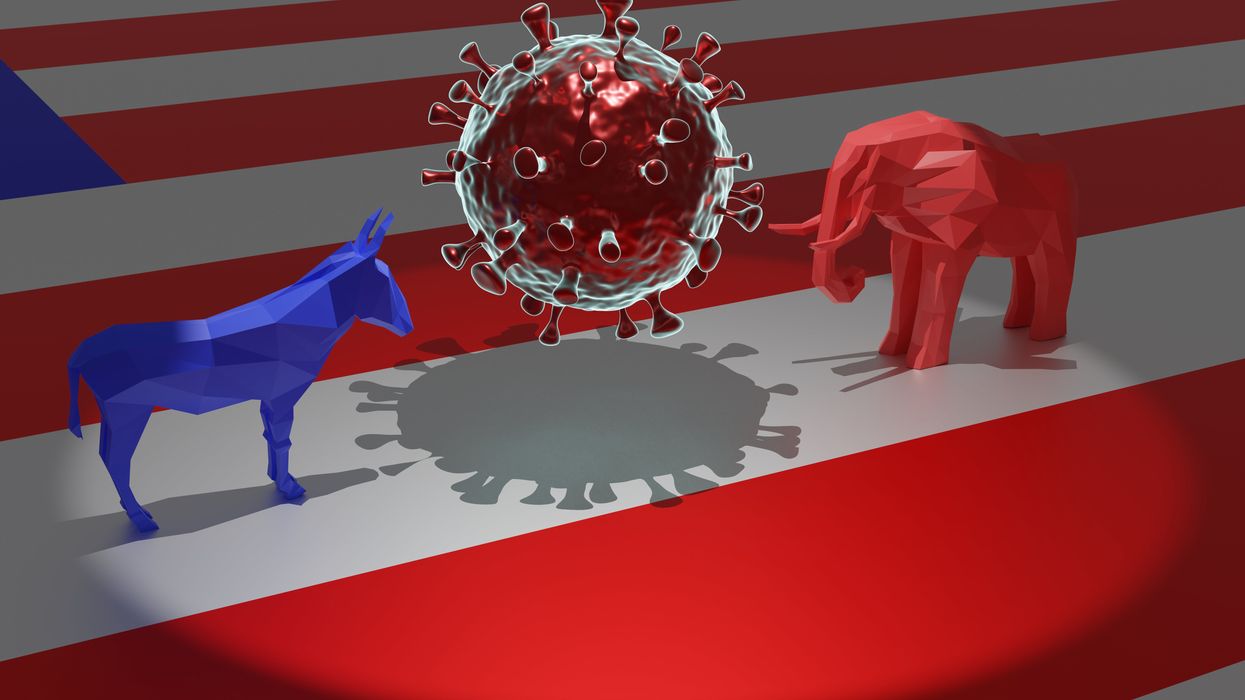Pearl, the author of “ ChatGPT, MD,” teaches at both the Stanford University School of Medicine and the Stanford Graduate School of Business. He is a former CEO of The Permanente Medical Group.
In a striking departure from recent voting and polling trends, health care has tumbled to the 16th most important problem facing Americans today, according to new Gallup data.
At first glance, this shift is bewildering, especially considering the central role health care played in the 2018, 2020 and 2022 election cycles.
Americans now list the nation’s top problems as immigration (28 percent), the government (20 percent), the economy in general (12 percent), inflation (11 percent), poverty, hunger and homelessness (5 percent), unifying the country (4 percent), crime/violence (4 percent), and so on.
Contrary to what the Gallup poll might suggest, the importance of health care hasn’t diminished. In fact, the scenario is quite the reverse. Health care continues to be a pivotal issue, but its impact now permeates a broader array of societal concerns, redefining what constitutes a “health care issue.”
To grasp this shift, consider the unprecedented health crisis our nation has recently navigated. The Covid-19 pandemic didn’t just challenge our health care system. It reshaped our nation and exacerbated nearly all of its underlying issues. Even with a significant reduction in disease-related fatalities, the pandemic’s imprint on our everyday lives is unmistakably widespread and deep-rooted. Four years filled with upheaval and apprehension have blurred the traditional boundaries between health care and other areas of our lives, from the economy and social relations to our trust in government and other people.
Take, for example, the direct and tangible impact of Covid-19 on our nation’s economy, which is reflected in the concerns ranked third, fourth and fifth in the Gallup survey. The pandemic’s disruption of supply chains, along with the government’s substantial financial relief packages, contributed massively to inflation. Since then, measures taken by the Federal Reserve to tame higher prices have increased interest rates, housing costs and homelessness.
As a result, the cost of health care, which was once viewed as an isolated financial burden, has become intertwined with other economic pressures, including soaring rents, grocery bills and fuel prices. Health care isn’t unimportant. It has simply become another item on a growing list of unaffordable expenses.
The pandemic took a toll not only on our pocketbooks, but also on the nation’s mental health and societal cohesion, too. Forced isolation and the widespread fear of infection sowed seeds of loneliness and distrust, leaving lasting scars on our collective psyche. This period of upheaval intensified perceptions of “the other,” fueling xenophobia and deepening social divides (reflected in first- and ninth-ranked concerns — immigration and race relations, respectively).
Immigration fears, a striking symptom of these anxious times, signal a deeper societal malaise and mistrust that gained momentum during the pandemic. Our shrinking social circles made us wary of engaging with those outside our immediate networks, exacerbating feelings of division.
As economic uncertainties and safety concerns mounted, so too has apprehension about the implications of open borders. What initially emerged as a health precaution — self-isolation — has evolved into a more profound shift in social attitudes, fueling the instinct to safeguard ourselves and our loved ones by keeping strangers out.
The ongoing crisis atmosphere also deepened distrust in government leadership (the second biggest issue), which further widened societal divisions and has prompted a desire among many Americans to unify the country (the sixth concern on the Gallup list).
The government’s handling of the pandemic — marred by testing-kit shortages, inconsistent health advisories, and fluctuating policies on school closures and mask mandates — amplified doubts about elected leaders and eroded people’s trust in regulatory bodies. Coupled with congressional struggles to enact bipartisan legislation, these issues paint a picture of pervasive government failure. The inability of elected officials to protect people’s health currently blends with its failure to address countless other basic needs.
Taken together, the reordering of national concerns in the wake of Covid-19 doesn’t suggest health care’s diminished relevance. Instead, it reveals the extent to which the pandemic unraveled the social fabric and collective psyche of our nation.
The fact that voters now prioritize issues like immigration, government effectiveness and the economy over traditional health care topics doesn’t indicate that our country is content with the health care system. To the contrary, in separate polling, 73 percent of U.S. adults say the health care system fails to meet their needs.
The reality is that the United States can’t successfully address the problems spotlighted in the Gallup poll unless we overcome our health challenges — be they physical, mental or economic.
To effectively tackle our economic hurdles, it’s essential to curb rising health care costs, which already exceed $4 trillion annually and are projected to reach $7 trillion by 2031. We also can’t narrow the widening rifts in our society unless we prioritize the physical and mental well-being of our populace. And finally, the public’s trust in government will continue eroding until legislators confront the issue of lobbying. Since 2021, health care companies have spent $1.4 billion on campaign contributions and lobbying — more than any other industry — to influence policy decisions. It is clear these practices have undermined the credibility of elected officials.
The Covid-19 pandemic indelibly altered our lives, caused widespread fear and laid bare the vulnerabilities of American politics. Its enduring influence is evident today. Surveys like this capture the extensive and profoundly negative effects it has had on people’s perceptions and priorities.




















Trump & Hegseth gave Mark Kelly a huge 2028 gift